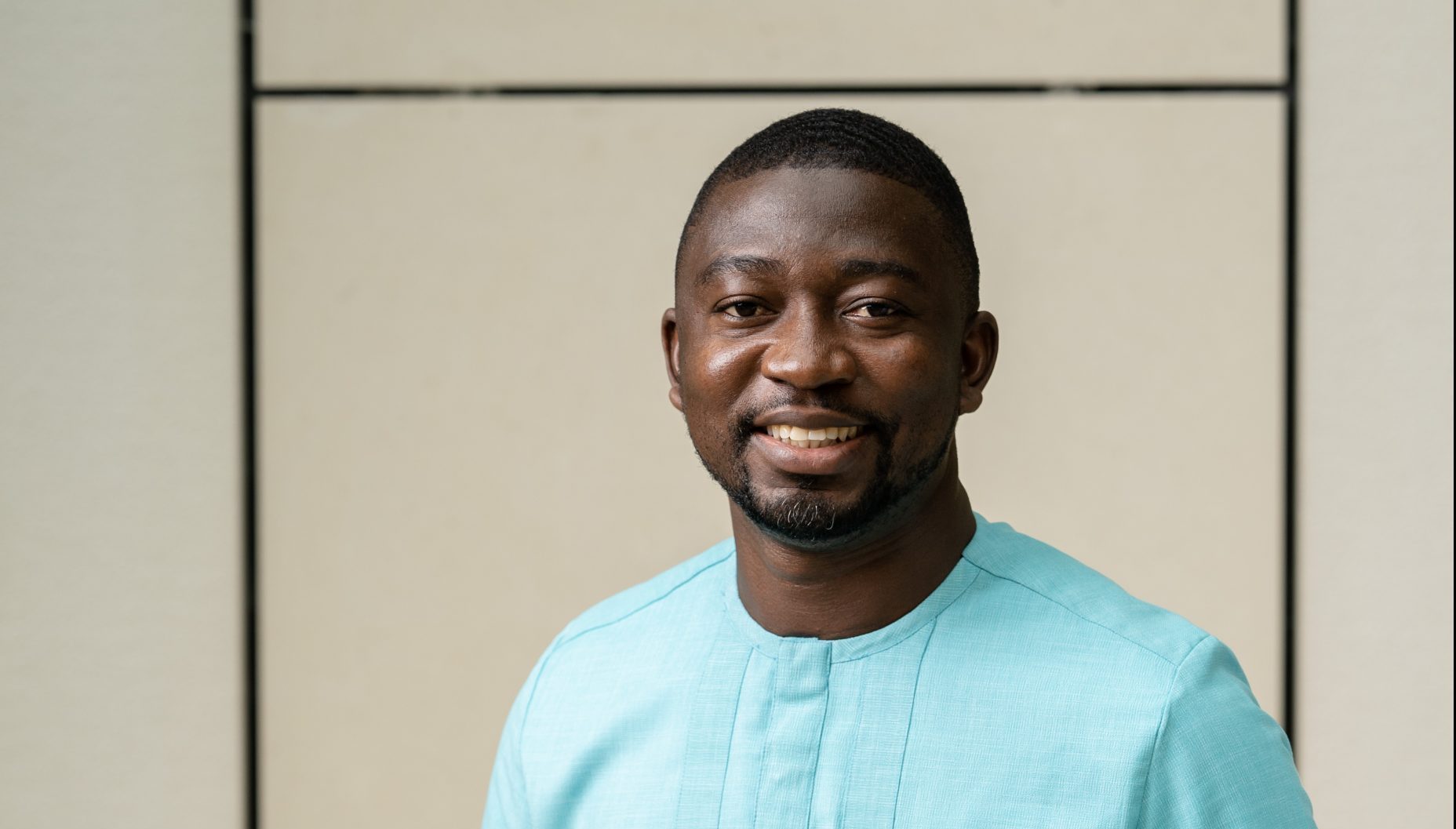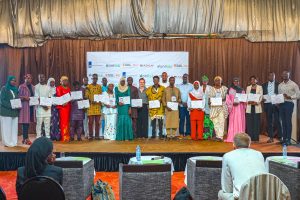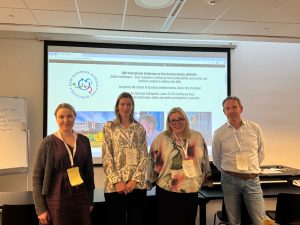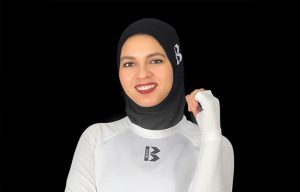Back in April, we met Gideon for the first time when he visited the Netherlands as part of a Ghanaian delegation exploring his potential on the Dutch market. With his high-quality, luxurious bags and shoes, Gideon is ready to take the Netherlands and Europe by storm. The West Africa Deal Summit provided your travelling reporter with a chance to do a deep dive into the world of Giddins and the Ghanaian fashion industry.
Great to see you again, Gideon! Speaking to a lot of your fellow entrepreneurs this week, I learnt that for many of them this isn’t their first business. Many started off at a really young age. Was that the same for you?
I’d say Giddins is my first business. Prior to that, I was just trying other things in school. I started off selling pepper sauce, which my mom’s friend used to make. That was in my early 20s. I studied engineering, and I practiced my sales skills selling air conditioning, microwaves and all that. And then around 2009, 2010 I ventured into shoes, sandals, slippers. But only in 2017 I got into an accelerator. That’s when I really got to know how I could shape my business. There’s been a learning curve, but it hasn’t been a bad ride!
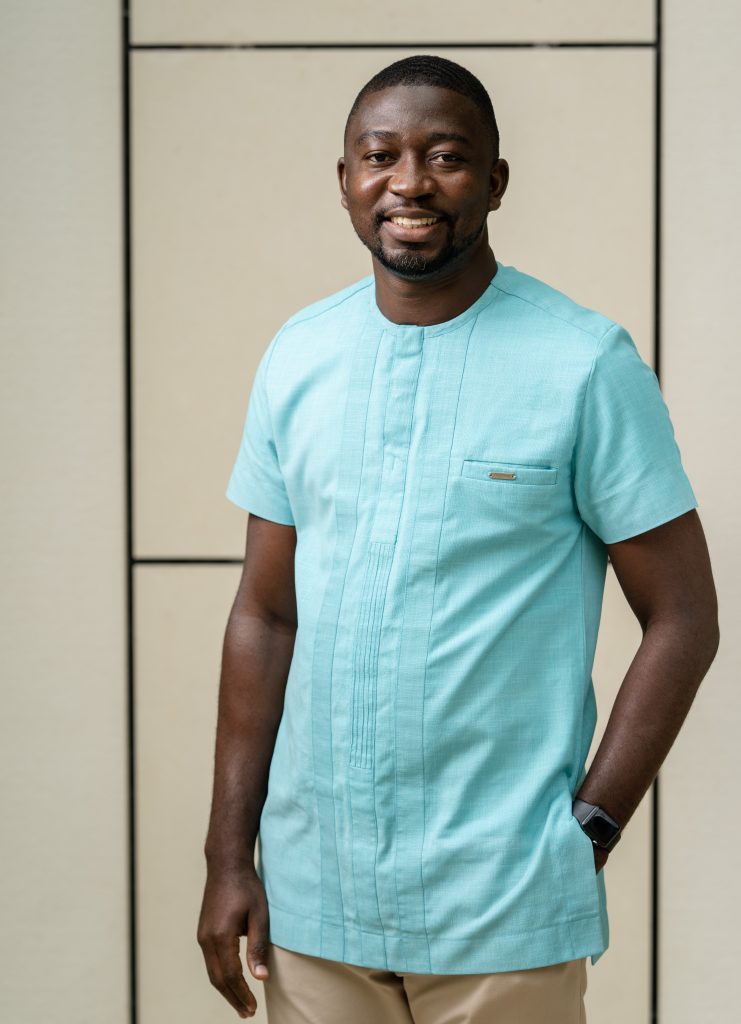
After I got into Orange Corners things really took off. I opened a physical shop, started selling via social media. We used our OCIF money to expand production volumes, buy a number of new machines to make smaller circular bags. One thing led to another. Trying to secure loans, going abroad for exhibitions, learn the market dynamics in neighbouring countries. And after that to Europe: fairs in Germany, looking for potential buyers in the Netherlands.
During my last visit, I most likely found a lady in Rotterdam who wants to ship our products. And you know the most interesting part? I went with my bags, but she was particularly interested in the clothes I was wearing. They were my own, but I hadn’t commercialised them just yet. So I’m looking at doing that too now.
And there’s people from the US or Canada or wherever who want to get African bags, they come to us because we get recommended. When they say they love our designs, it makes us humble. And at the same time, it pushes you to work harder, because as a Ghanaian bag manufacturer you see big opportunities!
When customers from the US or Canada say they love our designs, it makes us humble. And at the same time, it pushes us to work harder, because as a Ghanaian bag manufacturer you see big opportunities!
Gideon Dendzo, Giddins Ghana
How do you currently make most of your sales?
We did a survey a while back, and about 60% of our sales come from online stores, either Instagram or Facebook. The rest are referrals or people who’ve known us for a long time. I was considering opening a second physical store, but I realised it might be better to really leverage our social media presence, hire someone specifically for that, make it really strong. I currently manage our social media myself, and it’s a lot of work. Responding to Instagram messages, WhatsApp messages and all that. We also joined some online market stores in Ghana. Like a giant in the telecommunications industry is opening an online marketplace, they have some 11 million subscribers. The challenge here though is that if you make a specific bag in one colour, you have to make 30 of the same. You need to put in more money to produce the same thing.
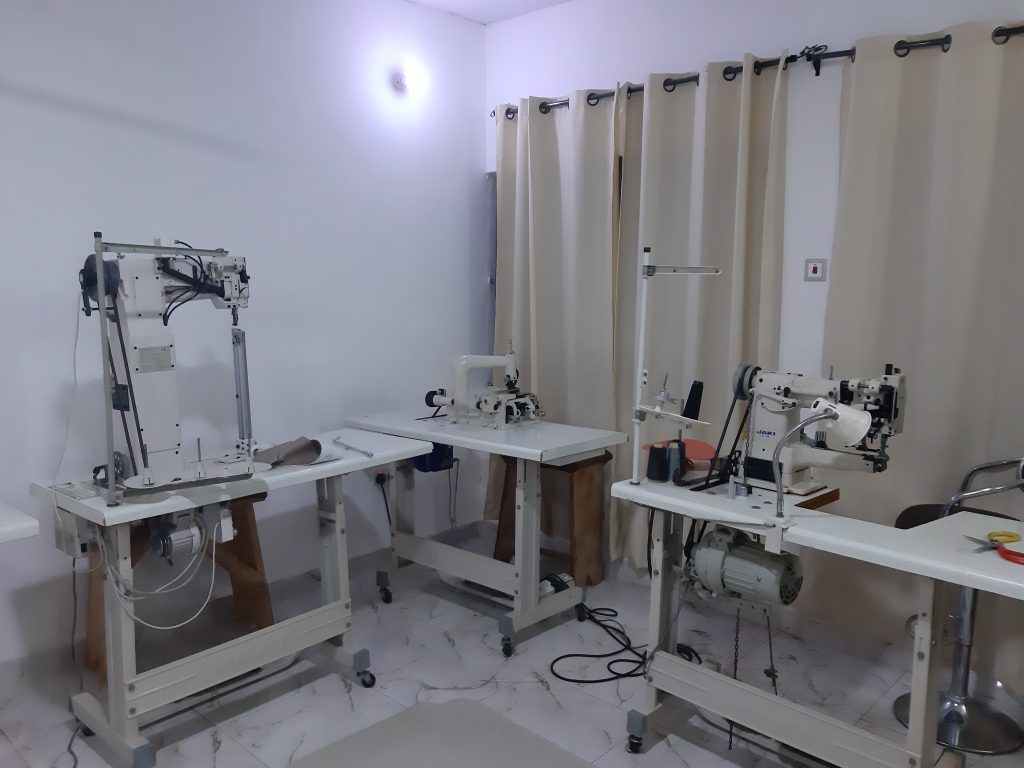
You were with us at the West Africa Deal Summit because you’re ambitious and hoping to scale. What were your hopes going into the summit?
I went in with an open mind. I was planning to pitch and say “Hey, this is the level of my business and this is how much I need”. I thought I was prepared enough until I did the mock pitch. The demo pitches were a real eye opener for me. That was when I realised that there was a lot I still needed to change. To be aware of how much my business is valued at the moment, for example. Not just looking at the physical assets we have, but also doing thorough future projections.
The summit itself was a great experience for me. It gave me a better understanding of how capital really trickles down to the entrepreneur and what are the barriers from the fund managers’ side. Because even though there’s a lot of money, entrepreneurs aren’t always able to access that money. We got to learn about the barriers and how to overcome them. How to find a fund manager that suits you. Because you don’t go to just anybody, you have to find a fund manager that has your ticket size, can help you make the impact you want to make.
I’m very optimistic that something great is going to happen. It’s not going to happen within the next three months, as due diligence can take six months to a year. But I’m very sure something will come up soon.
The West Africa Deal Summit was a great experience for me. It gave me a better understanding of how capital really trickles down to the entrepreneur and what are the barriers from the fund managers’ side.
Gideon Dendzo
So if you secure that investment, what’s the next step for Giddins?
To be able to fulfil the demand, we need to increase our production volumes. Right now, we’re sometimes pressed to make the demand. We just subcontracted to some people, for example. So we’re also looking at hiring extra workers and standardisation of our products. Product quality comes with standardisation.
I’d also like to increase our distribution channels. Just before I came to the Netherlands, we secured two spots in the airport terminal where they’re going to show our products in partner stores. Some smaller products, so that people who still have some money left can spend it there.
We want to be the go-to brand when it comes to bagmaking, shoemaking. But this year in particular, our concentration and investment has all been in handbag production. This is where I see we’ll be able to outbid the competition. When it comes to the shoe market, it’s more saturated, the competition is very tough. It’s not like that on the handbag market. People fall back on us all the time when they need to produce bags, maybe for a conference or so. We’ve had people ask for 1000 laptop bags before, for example. And they want it within a month. Everything is handmade. Our current production capacity is 300 per month, and that’s only if we don’t do anything else. More machines will help us create more employment, maybe hire 50 people or so.
Social impact is a critical part of our business, it’s part of our business model.
Gideon Dendzo
Your social mission is important for you as an entrepreneur. Can you tell us a bit more about what you do regarding community development?
Social impact is a critical part of our business, it’s part of our business model. In Ghana, it’s very difficult for people without skills or education to get into employment. And if you don’t take care, they’ll use most of their energies destructively. So as a business, we incorporate them into our business model, help them gain skills, use their energy constructively.
When young people come to Accra, the most expensive things for them are housing and transportation. We cover that, because we give them in-house accommodation that doesn’t require them to travel, spend their salaries on that. We give them a health insurance, that caters for some basic health costs. But we don’t just offer employment to school dropouts. We also employ women who finish universities and maybe want to learn a different skill. We also give them that opportunity. Kwame Nkrumah University for example places some of their students here as interns. So there’s also knowledge sharing between people with education and those who didn’t get the opportunity to finish their education. That’s how we really push our social mission for the less privileged, disadvantaged youth.
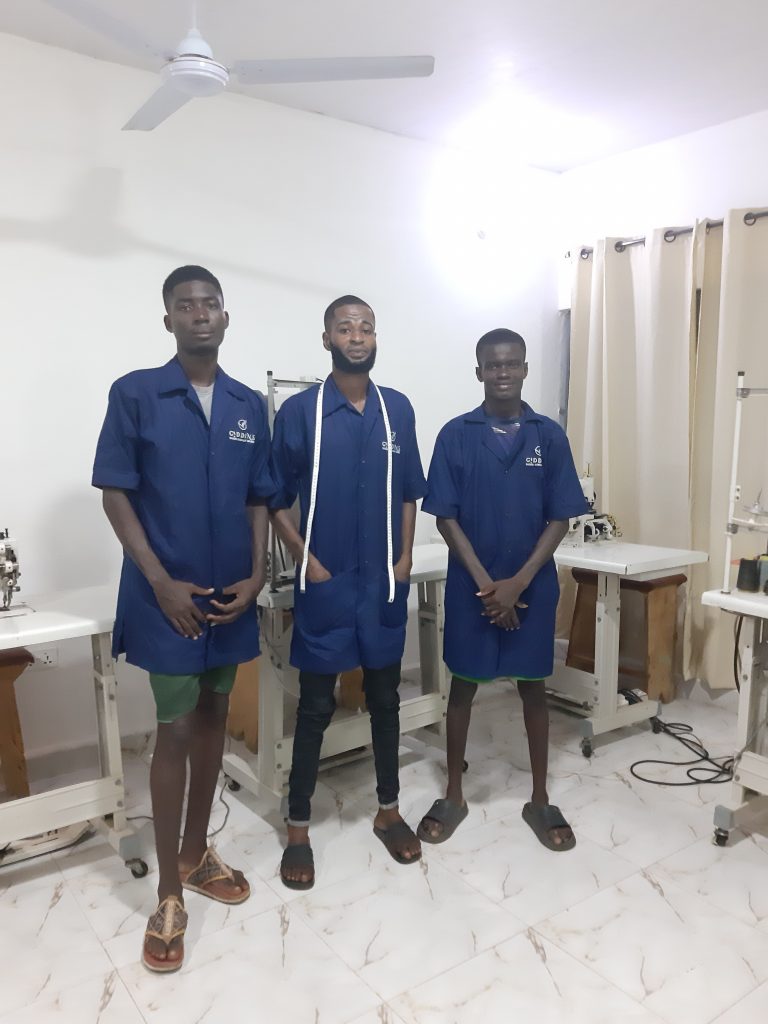
What about the development of the sector you’re in?
The leather industry is really a developing sector. We’re now trying to develop things like policies and regulations. I’m part of the technical committee for the Ghana Standards Authority for leather and leather products, and we try to design some standards for the industry. Before, we didn’t really pay much attention to technical and vocational training here in Ghana, but this is now slowly changing, also as a result of the SDGs. The government is now investing some money in the sector. But the thing is, most of the youth aren’t really interested in the profession. So in the future, I’d like to develop part of the business into an academy, where we can bring tutors elsewhere to help develop the sector and make sure people are interested.
You also applied to get a mentor from PUM, which connects SME with Dutch industry experts. What do you hope to gain from working with a Dutch mentor?
The PUM mentors have worked in international organisations, and they know what the market standards are. We’re trying to see how best we can export our products to those international markets. They’ve worked in those markets, so they’re the best people to tell us how the things are. We’d be fortunate to have people from the handbag sector, hopefully they can even tell us what kind of machines give maximum efficiency, how to optimise our processes.
We’re doing well, but we want to grow to the level that meets the standards of the markets that we want to sell to. And these mentors have a network of people, distributors, partners. They’ll have a wealth of knowledge that’ll hopefully help us become even more sustainable.

